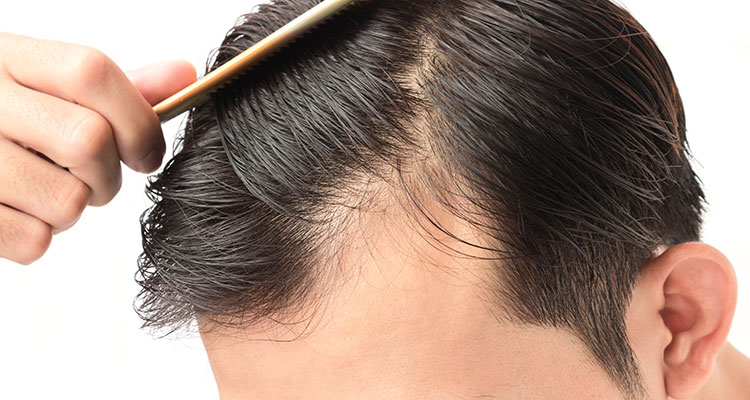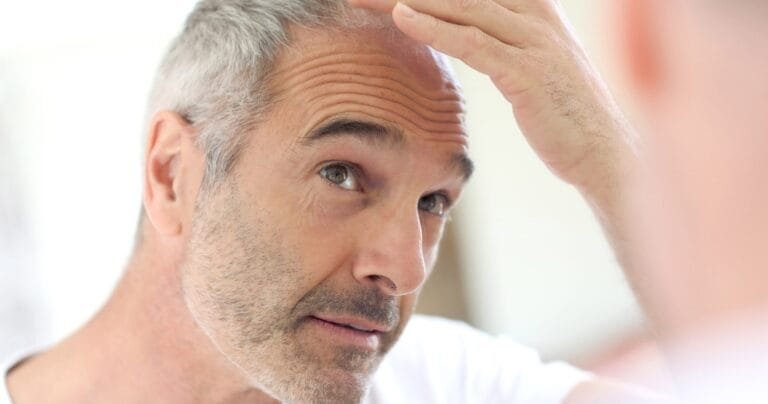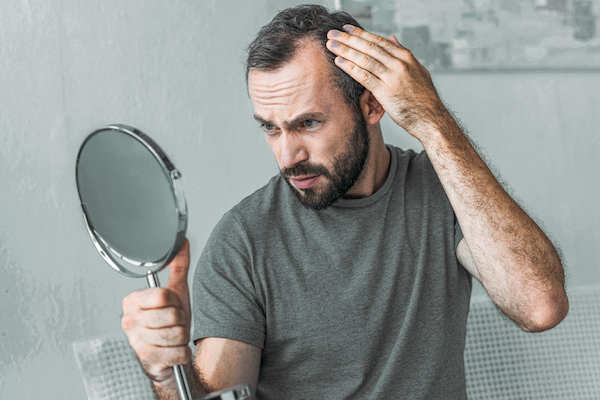Preventing Hair Loss in Your 30s and 40s: What Treatments Work Best?

Let’s discuss preventing hair loss. Hair loss is a concern for many individuals, and one question that often arises is, “Does stress cause balding?” While complex, the answer involves scientific evidence and an understanding of how our bodies react to stressful situations. As the hair transplant service director at Davis Hair Restoration in Cherry Hill, led by board-certified plastic surgeon Dr. Steven Davis, I often encounter patients who wonder whether the stress in their lives could be contributing to their thinning hair or bald patches.
Stress is undeniable in modern life, but does it really lead to balding? The short answer is yes, stress can cause hair loss, but the type and extent of hair loss vary from person to person. This article will explore the relationship between stress and balding, the science behind stress-induced hair loss, and the options available for those experiencing it.
Preventing Hair Loss: How Does Stress Cause Balding?
The link between stress and hair loss isn’t a myth. Stress-related hair loss is a medically recognized condition known as telogen effluvium. In cases of telogen effluvium, significant stress pushes many hair follicles into a resting phase, causing them to shed hair faster than usual. This shedding can happen suddenly, and many patients notice their hair thinning rapidly during high emotional or physical stress periods.
But telogen effluvium isn’t the only way stress can impact your hair. Stress can also exacerbate androgenic alopecia, more commonly known as male or female pattern baldness. While androgenic alopecia is primarily driven by genetics and hormonal factors, stress can accelerate the process, leading to more noticeable balding over time.
Preventing Hair Loss: Types of Stress-Related Hair Loss
When asking, “Does stress cause balding?” we must first understand the different types of stress-induced hair loss. There are three primary conditions associated with stress and hair loss:
- Telogen Effluvium: As mentioned earlier, telogen effluvium occurs when stress forces hair follicles into a resting phase. Hair growth occurs in cycles—growing, resting, and shedding. Stress disrupts this cycle, causing more hair to shed prematurely. The good news is that this hair loss is often temporary, and hair can regrow once the stressor is resolved.
- Trichotillomania: This condition is less common but also linked to stress. Trichotillomania is a compulsive disorder where individuals pull out their hair, often as a coping mechanism for stress, anxiety, or other emotional challenges. Over time, the repetitive pulling can lead to permanent damage to the hair follicles and significant balding.
- Alopecia Areata: This is an autoimmune disorder that is believed to be triggered, in part, by severe stress. In alopecia areata, the immune system attacks the hair follicles, causing sudden, patchy hair loss. While not directly caused by stress, it’s thought that emotional or physical trauma can exacerbate the onset of this condition.
The Science Behind Stress and Balding
To better understand the question, “Does stress cause balding?” It’s important to explore the biological mechanisms that connect stress to hair loss. When the body experiences stress—whether physical, emotional, or environmental—it triggers a complex chain of hormonal reactions.
The body’s response to stress activates the release of hormones like cortisol and adrenaline. While these hormones help the body manage stressful situations, their prolonged elevation can disrupt various physiological processes, including hair growth. High cortisol levels, for instance, have been linked to the premature aging of hair follicles and the suppression of new hair growth. When the body is under stress, it diverts energy away from non-essential functions like hair growth to prioritize immediate survival, which can lead to noticeable hair thinning.
Preventing Hair Loss: Managing Stress-Induced Hair Loss
If you’ve noticed significant hair loss and suspect that stress might be a contributing factor, the first step is to evaluate the underlying causes of your stress. Managing stress through lifestyle changes—such as exercise, relaxation techniques, and proper sleep—can help prevent further hair loss and potentially encourage regrowth.
At Davis Hair Restoration, Dr. Steven Davis emphasizes early intervention. If you’re asking, “Does stress cause balding, and what can I do about it?” The good news is that effective treatments are available.
Hair Restoration Solutions for Stress-Related Balding
While addressing the root causes of stress is essential, cosmetic solutions are also available to restore hair loss caused by stress. We offer several treatment options at Davis Hair Restoration, including hair transplants, PRP (Platelet-Rich Plasma) therapy, and non-surgical treatments designed to stimulate hair growth and restore volume.
- Hair Transplants: Hair transplants can offer a permanent solution for those experiencing more significant balding due to stress or genetics. During this procedure, Dr. Davis and his team transplant healthy hair follicles from areas of the scalp that are not affected by hair loss to areas where thinning or balding has occurred.
- PRP Therapy: Platelet-rich plasma therapy is a non-invasive treatment that uses your body’s growth factors to stimulate hair growth. PRP is injected into the scalp to encourage hair follicles to enter the growth phase, promoting thicker, fuller hair.
- Scalp Micropigmentation: For individuals looking for a non-surgical approach to camouflage thinning hair, scalp micropigmentation can be an excellent option. This cosmetic treatment uses micro-needling to deposit pigment into the scalp, creating the appearance of fuller hair.
Does Stress Cause Balding?
While stress alone may not be the sole cause of balding, it can accelerate hair loss and exacerbate underlying conditions. The good news is that many people can regain control over their hair’s appearance and restore confidence with the right treatment plan. If you’re concerned about stress-related hair loss, it’s essential to consult with a professional who can guide you toward the most effective solutions.
At Davis Hair Restoration, led by Dr. Steven Davis, we offer expert hair restoration services tailored to each patient’s unique needs. Please schedule a consultation today to explore how we can help you manage stress-induced hair loss and restore your hair’s natural beauty.






